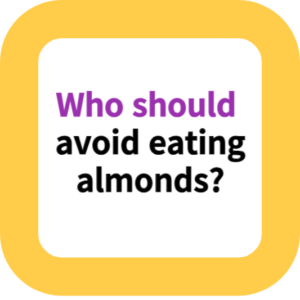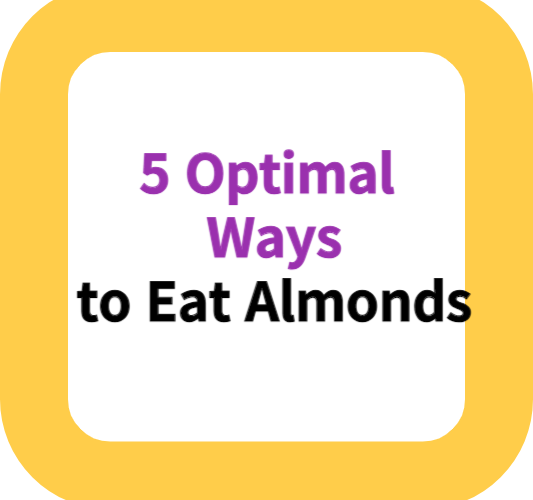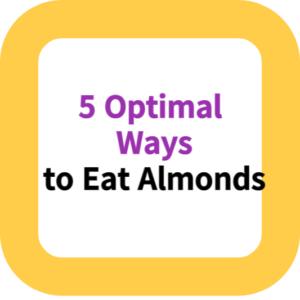Who should avoid eating almonds?
Hello and welcome to our dedicated space where we explore the multifaceted world of almonds, a staple in healthy diets globally. Our blog delves into the nutritional wonders of this crunchy, seed-like nut, celebrated for its rich content of proteins, fibers, vitamins, and minerals.
Here, we don’t just glorify the myriad health benefits almonds offer, such as enhancing skin health and reducing the risk of chronic diseases. We also navigate through the nuances of almond consumption, addressing vital questions like who should limit or avoid almonds, and how different health conditions interact with almond intake.
Our aim is to provide you with well-rounded, informative content that balances the positives with the necessary cautions, ensuring you make the best dietary choices for your health.
Join us as we journey through the comprehensive health benefits of almonds, examining their role in managing heart health, blood pressure, and even cancer risks. Yet, our exploration doesn’t stop at their benefits.
We acknowledge that almonds, like any food, are not one-size-fits-all. In our blog, we dive deep into the aspects of almond consumption that require caution – from digestive issues to nut allergies and the interaction with vitamin E supplements.
Our expert insights and detailed analyses aim to guide those with specific health conditions or dietary restrictions on how to safely incorporate or avoid almonds. Stay tuned for a balanced perspective on almonds, tailored to cater to diverse health needs and lifestyles.
Who should avoid eating almonds?

Introduction: Understanding Almonds in a Nutritional Context
Almonds, with their distinct seed-like shape and crunchy texture, have earned their place as one of the most beloved tree nuts around the world. Packed with essential nutrients such as protein, fiber, potassium, phosphorus, magnesium, and vitamin E, almonds offer extensive health benefits.
They are known to improve skin health, reduce the risk of heart disease and certain cancers, and assist in managing blood pressure. However, like any food, almonds have their limitations and are not suitable for everyone. This raises the question: Who should avoid eating almonds?
Digestive Concerns and Almond Consumption
For individuals experiencing digestive problems, almond consumption should be approached with caution. Almonds, while generally healthy, can exacerbate certain digestive conditions. It’s recommended that people with sensitive digestion limit their almond intake to a small number of nuts per day, avoiding potential discomfort.
Implications for Skin Conditions and Weight Management
Those with particular skin conditions might find that almonds aggravate their symptoms. Additionally, individuals focusing on weight loss should consider the calorie content of almonds.

While nutritious, almonds are energy-dense and may contribute to caloric excess if not consumed in moderation. For weight management purposes, it’s better to choose soaked almonds over fried ones.
Navigating Nut Allergies and Blood Pressure Issues
Individuals with nut allergies, especially those prone to severe reactions, should avoid almonds to prevent life-threatening conditions like anaphylaxis. Furthermore, people with high blood pressure need to be mindful of their almond intake.
Although almonds can be part of a heart-healthy diet, they should be consumed in controlled quantities, ideally soaked, to avoid exacerbating blood pressure issues.
Interactions with Vitamin E Supplements
Considering almonds’ high vitamin E content, individuals already supplementing with vitamin E must be cautious. Excessive intake of vitamin E can lead to adverse health effects, and almonds can significantly contribute to this excess. Consultation with a healthcare provider is recommended to balance almond consumption with vitamin E supplementation.
Special Considerations for Specific Medical Conditions
People with certain medical conditions, such as kidney disease, liver disease, or a history of gout, should consult their healthcare providers before consuming almonds. Almonds might interact with their medications or worsen their existing conditions.
Challenges for Those with Swallowing Difficulties
Young children, the elderly, and individuals with conditions like dementia or Parkinson’s disease, or those with limited mobility, face a higher risk of choking on almonds.
For these groups, the consumption of nuts can be hazardous, and alternative forms of almonds, such as butters or milks, may be considered.
Conclusion: A Thoughtful Approach to Almond Consumption
Almonds are an excellent source of nutrition and offer a range of health benefits. However, their consumption isn’t universally suitable. It’s essential for individuals with specific health concerns, allergies, or dietary restrictions to consider these factors when incorporating almonds into their diets.
Moderation and medical consultation are key to enjoying the benefits of almonds without adverse effects. By understanding individual dietary needs and health conditions, almonds can be a valuable addition to a balanced diet for many, but not all.



